 1 citations,
May 2018 in “Psychology, Health & Medicine”
1 citations,
May 2018 in “Psychology, Health & Medicine” The two-factor model fits better for Chinese patients' understanding of illness causes than the original four-factor model.
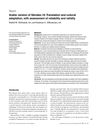 24 citations,
March 2007 in “International Journal of Dermatology”
24 citations,
March 2007 in “International Journal of Dermatology” The Arabic Skindex-16 is a reliable and valid way to measure the impact of skin conditions on quality of life in Saudi patients.
 45 citations,
January 1999 in “Dermatology”
45 citations,
January 1999 in “Dermatology” The VQ-Dermato is a reliable French questionnaire for measuring quality of life in chronic skin disorder patients.
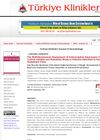 January 2022 in “Turkiye Klinikleri Journal of Dermatology”
January 2022 in “Turkiye Klinikleri Journal of Dermatology” The Turkish version of the MAIA-2 Scale is valid and reliable for patients at a dermatology clinic.
November 2022 in “Skin appendage disorders” The Spanish version of the WAA-QoL questionnaire is reliable and valid for assessing quality of life in women with hair loss.
 27 citations,
January 2016 in “Quality of Life Research”
27 citations,
January 2016 in “Quality of Life Research” The PCOSQ-50 is a valid and reliable questionnaire for measuring quality of life in Iranian women with PCOS.
 9 citations,
January 2014 in “Postepy Dermatologii I Alergologii”
9 citations,
January 2014 in “Postepy Dermatologii I Alergologii” The Polish Skindex-29 is a reliable and valid questionnaire for assessing the quality of life in Polish dermatology patients.
 9 citations,
March 2018 in “Actas Dermo-Sifiliográficas”
9 citations,
March 2018 in “Actas Dermo-Sifiliográficas” The Spanish version of the Hair Specific Skindex-29 scale is a reliable and valid way to measure the impact of hair loss on women's quality of life.
 September 2023 in “Medicina-lithuania”
September 2023 in “Medicina-lithuania” The study suggests that analyzing DNA can help treat hair loss, but more research is needed.
 17 citations,
July 2017 in “International Journal of Behavioral Medicine”
17 citations,
July 2017 in “International Journal of Behavioral Medicine” The Egyptian Arabic Skindex-16 is a reliable way to measure how skin diseases affect quality of life in Egyptian patients.
 April 2017 in “Australasian Journal of Dermatology”
April 2017 in “Australasian Journal of Dermatology” Different skin conditions show distinct types of vessel inflammation, a new quality of life index for vulval disease is reliable, a certain intrauterine system might be linked to chronic vaginal yeast infections, and oral minoxidil reduces hair loss in women.
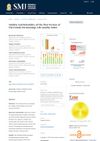 May 2023 in “Siriraj Medical Journal”
May 2023 in “Siriraj Medical Journal” The Thai version of the Family Dermatology Life Quality Index is a reliable and valid tool for assessing the quality of life of patients' families.
 May 2018 in “Actas Dermo-Sifiliográficas”
May 2018 in “Actas Dermo-Sifiliográficas” The Spanish version of the Hair Specific Skindex-29 is a reliable tool for measuring quality of life in Spanish-speaking women with hair loss.
 15 citations,
October 2015 in “PLOS ONE”
15 citations,
October 2015 in “PLOS ONE” The Chinese version of the PCOS quality of life questionnaire is reliable and valid for Chinese-speaking women with PCOS.
 July 2023 in “Deleted Journal”
July 2023 in “Deleted Journal” Androgenetic alopecia is more common in Saudi men than women.
 2 citations,
April 2021 in “Cureus”
2 citations,
April 2021 in “Cureus” Two new reliable Arabic questionnaires for measuring quality of life in women with PCOS were created, one for married and one for unmarried women.
 October 2012 in “European Neuropsychopharmacology”
October 2012 in “European Neuropsychopharmacology” People with early psychosis eat more calories, saturated fat, and sugar, and the drug olanzapine may lead to eating even more calories.
2 citations,
August 2010 in “The Open Dermatology Journal” Female pattern hair loss negatively affects quality of life, and treatment does not improve it within two months.
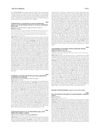 November 2010 in “Value in Health”
November 2010 in “Value in Health” Real-life dosing of biologics for plaque psoriasis often deviates from recommended guidelines, especially for high-need patients.
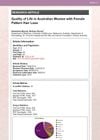 14 citations,
August 2010 in “The Open Dermatology Journal”
14 citations,
August 2010 in “The Open Dermatology Journal” Australian women with female pattern hair loss have a poorer quality of life, and starting treatment doesn't immediately improve it.
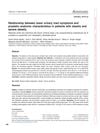 October 2020 in “Cirugía y cirujanos”
October 2020 in “Cirugía y cirujanos” Obesity is linked to more severe lower urinary tract symptoms.

Hair loss can cause significant social and emotional issues, especially for women and young men.
 February 2024 in “BMJ Open”
February 2024 in “BMJ Open” The study concluded that different treatments reduced post-COVID symptoms over time and that factors like age, severity, and comorbidities affect symptom risk.
 1 citations,
November 2023 in “Brain and behavior”
1 citations,
November 2023 in “Brain and behavior” Spironolactone improved cognitive performance and early sleep quality but not manic symptoms, appetite, or body weight in bipolar disorder when added to sodium valproate.

Non-adherence to medication in Egyptian SLE patients leads to more hospitalizations and symptoms.
4 citations,
January 2019 in “Egyptian Journal of Dermatology and Venereology” Androgenetic alopecia significantly affects quality of life, especially for women, who are more willing to pay for treatment.
 13 citations,
July 2001 in “International Journal of Dermatology”
13 citations,
July 2001 in “International Journal of Dermatology” Inflammation and Demodex mites might contribute to hair loss, and targeting them could help treat it.
 10 citations,
January 2014 in “Indian Dermatology Online Journal”
10 citations,
January 2014 in “Indian Dermatology Online Journal” Most medical students in the study had skin and hair issues, with acne, hair loss, and sun tan being common, and these issues varied by gender and origin.
4 citations,
October 2023 in “Journal of clinical medicine” Women with PCOS are much more likely to experience depression.
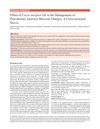 2 citations,
December 2021 in “World journal of dentistry”
2 citations,
December 2021 in “World journal of dentistry” Coconut oil effectively treats sore gums from new dentures and is safe, affordable, and heals quickly.

























